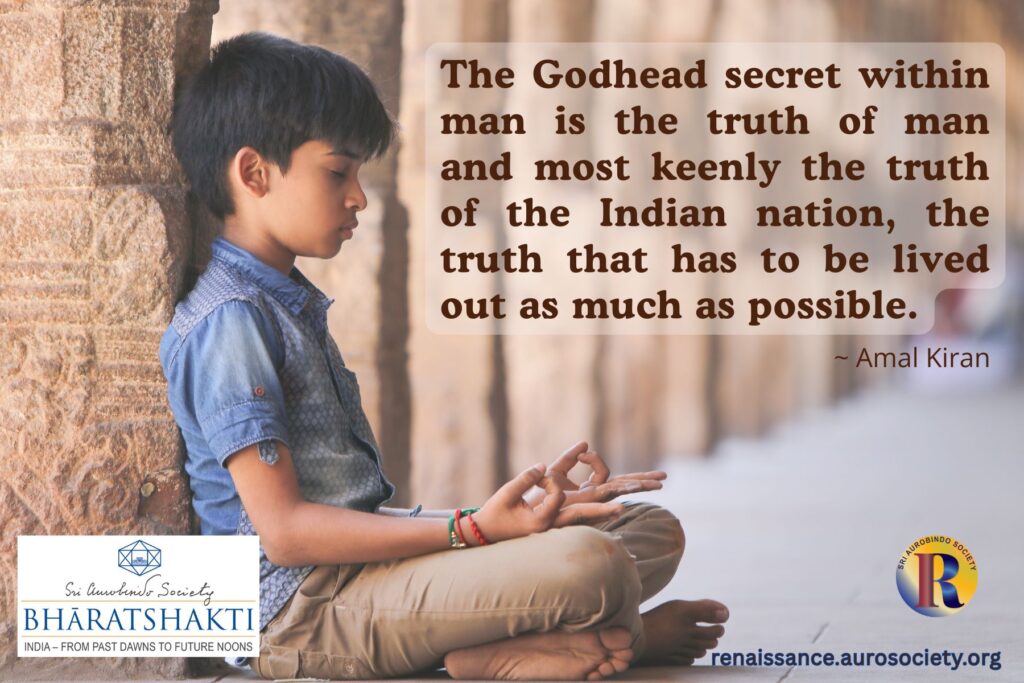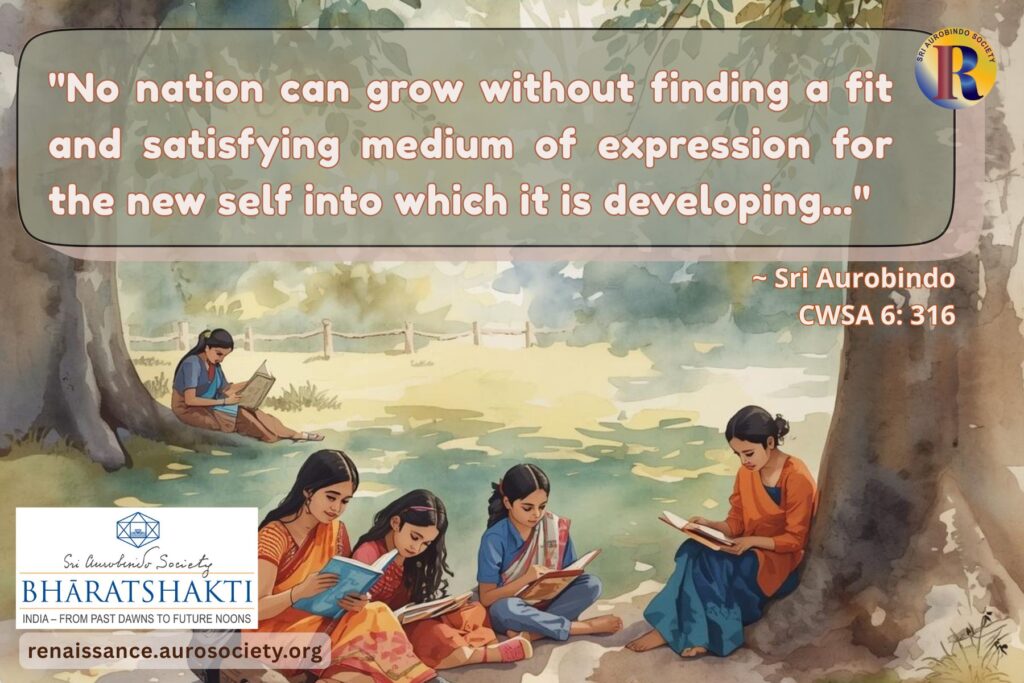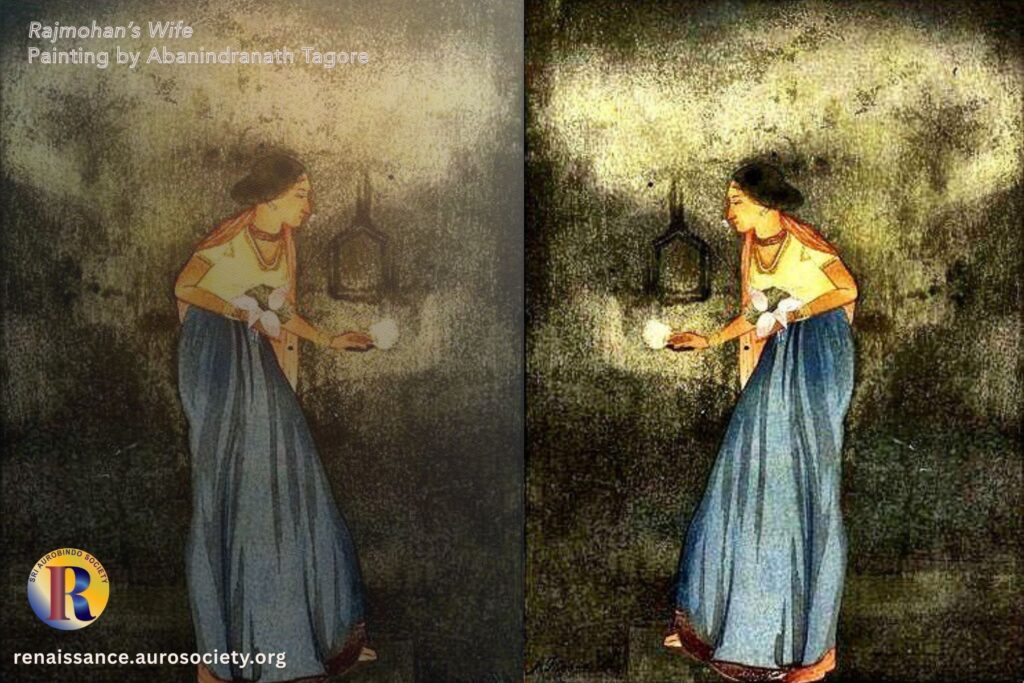Volume V, Issue 5
Authors: Anshika Agrawal and Kaushik Reddy
Editor’s Note: We are happy to feature a thought-provoking and timely article submitted by two young authors. They caution us about the perpetual noise of social media and its power to make us forget the value of silent reflection. They urge us to seek answer to a crucial question of our time: how to be human in the age of social media.
Reading this article made me recall a talk the Mother once gave to a women’s association in Paris. This was sometime between 1893 and 1912. The talk was about the nature of ‘Thought’ and how to become more self-aware of our thinking processes. She emphasized the role of silent reflection and said,
…one thing can be recommended to everyone: reflection, that is to say, concentration, self-observation in solitude and silence, a close and strict analysis of the multitude of insignificant little thoughts which constantly assail us.
~ The Mother, CWM, Vol. 2, p. 23
Social media today does a tremendous job of constantly assailing us with ‘the multitude of insignificant little thoughts’. Perhaps they are not even thoughts, merely bits of information. But the experience of mindless scrolling through social media feed does create what the Mother speaks of as “vague and unruly mental agitation.”
If you are an avid social media user, this article will certainly make you think!
~ Beloo Mehra

Sri Krishna in Bhagavad Gita says – ‘The senses are so strong and turbulent, O son of Kunti, that they can forcibly carry away the mind even of a person endowed with discrimination who practices self-control.’
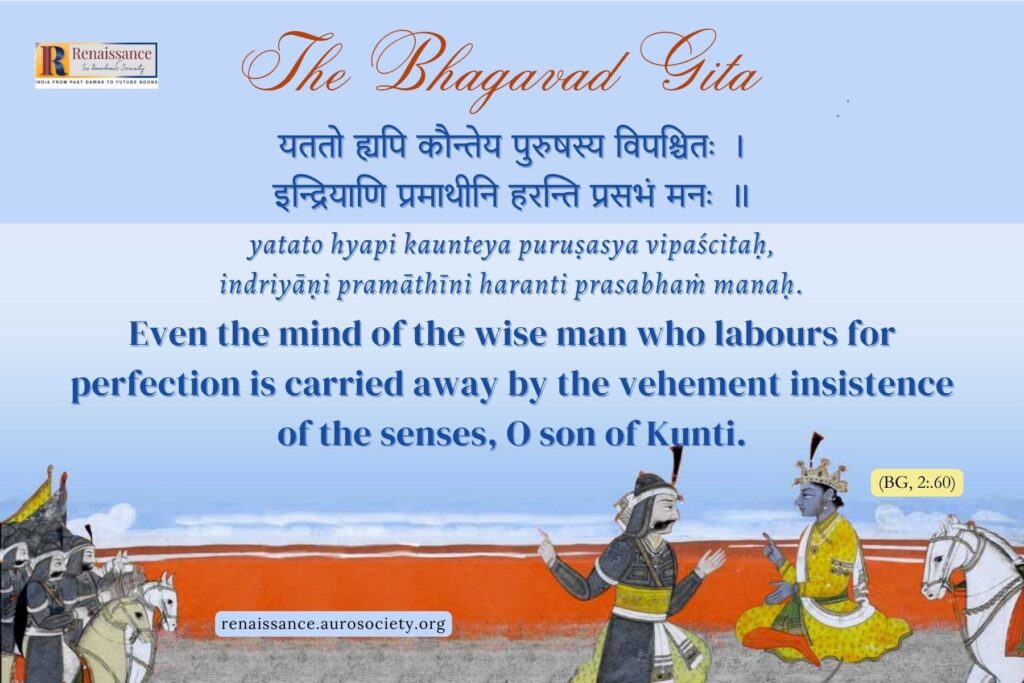
Lord Krishna’s words echo across millennia, a poignant warning about the senses forcibly carrying away the mind. Today, this ancient struggle finds a new battlefield: the endless scroll of social media, where unnecessary information bombards us, leaving little room for self-reflection.
Remember Descartes’ eloquent “Cogito, ergo sum”?
Our ability to think, doubt, and reflect was once considered the cornerstone of our human experience. In yesteryears, moments of solitude in day-to-day were possible to be found in various simple ways. While waiting for your bus at the depot or your turn at the doctor or your floor in the elevators, or simply when commuting to and from work. But all these invaluable moments that could have put us in touch with ourselves now vanish like fleeting thoughts. Only to be replaced by a cacophony of notifications and curated realities.
We, as a species, have forgotten the power of silence. We have forgotten the value of the space it grants for introspection, for understanding the symphony of emotions within.
Social media, built to bridge distances, has ironically become a chasm, separating us from our own selves and each other. It was envisioned as a tool, not a life, a window to connect, not a mirror to endlessly admire. Lost in the curated feeds, we miss the wisdom of our ancestors. We forget their value systems forged in the experience of years, not algorithms.
The sages of old, from Buddha to Shankara, understood the perils of desire and clinging.
Social media, however, has weaponised these very tendencies. We scroll through endless feeds, fueled by the insatiable need to possess the latest gadget, the perfect vacation, the envy-inducing lifestyle. Our value systems, once anchored in moderation, now contort themselves to keep pace with the digital churn.
Gone are the days of Mahavira’s “aparigraha,” the noble non-possession. Instead, we chase after the digital ghosts of happiness, mistaking likes and followers for true fulfilment.
It has been said, “We are a sad generation, manufacturing happy pictures.”
This digital deluge distorts our relationships, too. We seek “touch” through emojis, validation through likes, and understanding in filtered selfies. The very essence of human connection – the warmth of a hand, the depth of a gaze – fades into the background, replaced by a yearning for online approval.
Our current generation inherits a treasure trove of wisdom, a collective asset built over centuries. This inheritance whispers of kindness, truth, knowledge, accountability, and civic responsibility. These precious values are at risk as social media creeps into the fabric of our lives.
The pillars of social media – disruption, individualism, anonymity, and a lack of accountability – pose a dangerous threat.
A metaverse where anonymity cloaks venomous opinions under the guise of free speech becomes a breeding ground for division and discord. Half-baked knowledge masquerading as the democratization of information hinders the pursuit of true wisdom, the lifeblood of any civilization. Platforms that champion narcissistic behaviour and prioritize selfish goals over collective interests chip away at the very foundation of societal well-being.
To be human, in its purest form, is about nurturing a quest for inner truth. It also means working toward the realization of one’s full potential through conscious practice, and establishing a harmonious collective life. However, the current design of social media threatens to become the Trojan horse of our times, extinguishing the fire within us for a meaningful life.
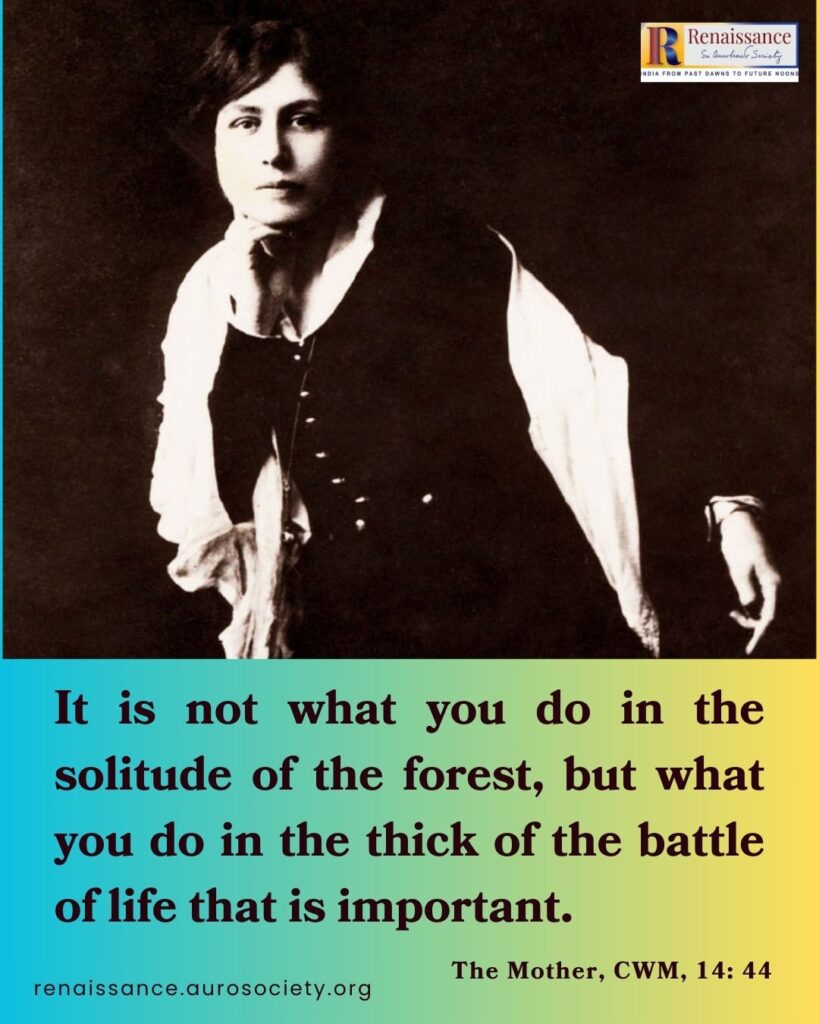
But hope still flickers amidst the pixels.
Perhaps social media, in its current form, is this generation’s marshmallow test. Maybe we will choose delayed gratification, mindful engagement over mindless scrolling, a connection beyond curated profiles, and inner peace over fancy lifestyles.
Let the silent bus ride be a meditation on gratitude, the doctor’s waiting room a crucible for self-forgiveness, and the daily commute a pilgrimage towards inner peace. Let us choose to step away from the algorithm, turn down the volume, and rediscover the power of silent contemplation.
In quiet spaces, we may yet find the answer to the most crucial question of our time: how to be human in the age of social media.
Also read:
Of Social Relations, Retirement and Sadhana
About the authors:
Anshika Agrawal is a young professional in the domain of Public Policy. She is passionate about Indian Knowledge Systems and its relevance in finding solutions to modern day problems.
Kaushik Reddy is working in the field of Politics. He is passionate about Indian Psychology, and Indic Renaissance, in the light of Sri Aurobindo.

~ Design: Beloo Mehra

